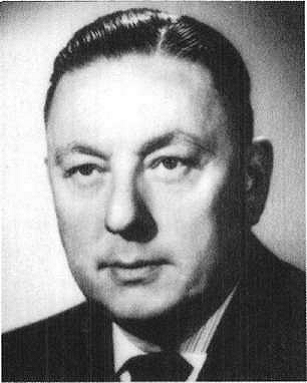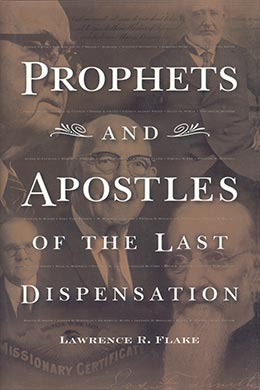Matthew Cowley
Lawrence R. Flake, Prophets and Apostles of the Last Dispensation (Provo, UT: Religious Studies Center, Brigham Young University, 2001), 481–83.

Born: 2 August 1897, Preston, Idaho
Quorum of the Twelve Apostles: 11 October 1945 (age 48)
Died: 13 December 1953 (age 56), Los Angeles, California
Matthew Cowley held in his arms a little Maori baby to whom he was about to give a name and blessing. Before he could begin the ordinance, the child’s father spoke: “By the way, give him his vision when you give him a name. He was born blind.” [1] Elder Cowley recalled that he was stunned by the request at first, but after reflecting upon the power of the priesthood and the simple faith of the baby’s father, he said to himself, “Why not.” The child received his sight.
When Matthew Cowley was only six years of age, he received a patriarchal blessing in which his remarkable ministry among the Maoris was foreshadowed: “You shall be sent as a delegate to the ten tribes and will become a leader and an interpreter in the midst of that people, and because of the power of God that shall be with you and the blessings of the Almighty, you shall be greatly beloved by that people.” [2] At the age of seventeen Elder Cowley served a mission to New Zealand and witnessed the fulfillment of the promise that he would be “an interpreter.” He translated the Doctrine and Covenants and Pearl of Great Price into the native New Zealand tongue and edited the Book of Mormon, which had previously been translated. This mission lasted five years, from 1914 to 1919, and included the period of World War I. In 1938 he returned as mission president for an eight-year assignment spanning World War II. During this time he and his missionaries carried the message of peace to the war-threatened New Zealanders.
Between these two missions, Matthew Cowley attended LDS University, the University of Utah, and George Washington University in Washington, D.C, where he was employed for a time as an aide to Utah senator and apostle Reed Smoot. Returning to Salt Lake City, he practiced law privately and later served as county attorney from 1925 until his second mission. Brother Cowley and his wife, Elva Taylor, whom he married in 1922, reared a daughter and an adopted son, who was a native of New Zealand.
By accepting a call to the Quorum of the Twelve in 1945, Elder Cowley followed in the path of his prominent father, Matthias F. Cowley, who had served in that quorum from 1897 to 1905. While a general authority, Brother Cowley served as president of the Pacific Mission and was thereby afforded the opportunity to preach again to the people he loved most—the Israelites on the islands of the sea. This was not a one-sided affection. As his patriarchal blessing had promised, he was indeed “greatly beloved by that people.”
When Matthew Cowley died at the early age of fifty-six, Elder Spencer W. Kimball described the kinship this good man had with the Maori people: “He was their champion. . . . He spoke their language, ate their food, sang their songs, and dreamed their dreams. . . . In the islands the people near worship him. They met [his] plane or boat with smiling faces, and they sang their farewell songs with tearful hearts as he left their shores.” [3]
Notes
[1] Matthew Cowley, “Miracles,” Speeches of the Year, 18 February 1953 (Provo, UT: Brigham Young University, 1953), 10.
[2] “Matthew Cowley: of the Council of the Twelve,” Improvement Era, November 1945, 641.
[3] Spencer W. Kimball, “Matthew Cowley, or The Man of Many Friends,” Relief Society Magazine, February 1954,79; see also “Elder Matthew Cowley—1897–1953,” Improvement Era, January 1954,11–12, 49–50; Henry A. Smith, Matthew Cowley: Man of Faith (Salt Lake City: Bookcraft, 1954).
